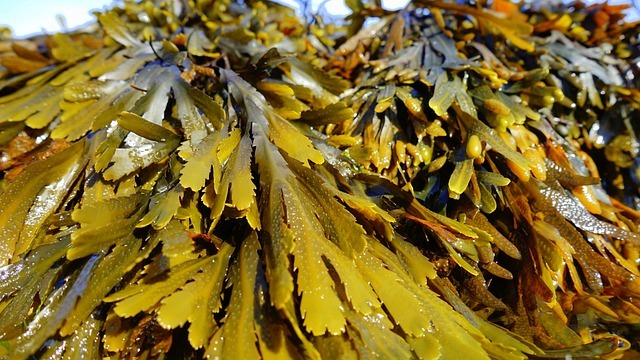Seaweed is becoming an increasingly popular ingredient and snack, hailed by nutritionists as the latest superfood. But does this apply to our canine companions too? Can dogs eat seaweed, or is seaweed toxic to dogs?
Can dogs eat seaweed?

Yes, some types of seaweed are safe for dogs to eat, and seaweed can be a delicious and healthy snack for your canine best fried!
When served to your dog correctly and safely, seaweed is a healthy treat that is packed full of nutritional benefits.
What are the health benefits of seaweed?

Seaweed is very dense in beneficial nutrients which can help to support your dog’s health. It is high in protein, which helps to build strong and healthy cells and tissues.
Seaweed is rich in iron, which plays an essential role in the cardiovascular system and the replenishment of red blood cells.
With high levels of omega-3, seaweed can support brain development and help to prevent age-related brain disorders. Omega-3 is also vital in maintaining a healthy immune system and can help to reduce inflammation due to conditions such as osteoarthritis.
And finally, the magnesium in seaweed is beneficial to the health of the nervous system.
What should I be aware of when offering seaweed to my dog?

The main risk when feeding seaweed to dogs is the high salt content, which can have various detrimental effects. A large quantity of salty food can cause salt toxicity, leading to symptoms such as vomiting, diarrhea, lethargy, and seizures.
To avoid the risk of salt toxicity, feed only processed sheets of seaweed or nori that do not contain added salt or soy sauce. Never feed flavored seaweed as it may contain toxic ingredients such as garlic.
Seaweed is also high in iodine, which can affect thyroid function in dogs. Never feed seaweed to dogs that have been diagnosed with thyroid problems.
If you take your dogs to the beach, ensure that they do not eat wild seaweed. This can contain high levels of salt and may also be contaminated with parasites.
The other issue with wild seaweed is that it may swell in the stomach or become lodged in the intestines. If your dog eats wild seaweed, contact your veterinary clinic straight away.
Maven is all about proactive pet care. Be your best friend’s best friend by giving them 24/7, high-quality, industry-leading vet care to improve their mental health, physical health and more. No more frantic googling or unneeded stressful visits to the vet – Maven helps you save hundreds while also ensuring your pet lives the best life possible. Get your kit now!



